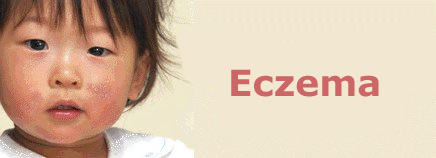About 3.5% of the world’s population suffers from some form of the skin condition known as eczema. Eczema is a general term that describes skin inflammations categorized as different dermatitis’s. Living with this skin condition can be itchy, uncomfortable and expensive. Below are some steps you can take that will help to alleviate the symptoms associated with this disease.

Use Coconut Oil
Coconut oil is one of the leading at home remedies utilized for treating eczema. Organic virgin coconut oil is preferred. Lets look at some of the benefits below:
- Reduces skin inflammation and itching due to the antibacterial, antimicrobial, anti-fungal and antioxidant properties it contains.
- Contains a plethora of healthy nutrients and vitamins including: vitamin E, vitamin K, lauric acid, caprylic acid and capric acid. These not only help to decrease itching and flaking by proper skin nourishment but can also help to spread infection while repairing the broken skin naturally.
- Contains medium chain fatty acids that helps to restore your skin’s barrier and protective layers. It helps reduce inflammation.
- Contains good cleaning and foaming elements that help to protect, nourish and soften the skin with easier absorption.
- After only 1-5 minutes of applying coconut oil to the affected area of the skin, you will experience itch relief. While relieving the dryness and itching associated with the eczema, the natural moisturizing benefits the skin by lessoning the itching sensation.
- Proves to be effective form of natural treatment because it is a natural oil that does not contain any harsh chemicals or ingredients that can trigger or worsen eczema flares.
- Supports tissue repair and healing necessary for proper function of the immune system by reducing inflammation in the skin’s tissue.
- Contains lauric acid, a rare type of fat found in breast milk. The body converts lauric acid to monolaurin. This has deep skin penetration properties and moisturizes your skin by protecting it from environmental damages.
Take Bleach Baths
According to, The American Academy of Dermatology, you should discuss bleach baths with a dermatologist before utilizing this form of treatment. The idea of bathing in bleach may sound a bit absurd; however, there have been documented benefits and relief found with this treatment option. Read more at http://medinstrum.com.
When preparing a bleach bath, it is imperative that you do not use too much or too little bleach. Here are a few tips for preparation:
- Use regular strength bleach. Avoid concentrated bleach products.
- Use a measuring cup to ensure that you do not use too much.
- Measure a half a cup of bleach for a full bathtub of water. A quarter cup of bleach for a half a tub of bathwater and for infant or toddler baths, measure a teaspoon per gallon of regular strength bleach.
- Soak for no longer than your dermatologist recommends, (typically 5-10 minutes).
Moisturize With Ceramides
Moisturizing is one of the most important steps you can take to effectively treat your eczema. While coconut oil helps to moisturize those dry, itchy patches of affected skin, it is lacking a major component to proper skin barrier optimization (SBO), ceramides. Ceramides make up about 20% of the skin’s barrier and can be lost or damaged to excessive time spent in the sun and the damage associated with it. In addition, other environmental factors including dry or hot exposure can cause the epidermis to lose important ceramides.
Make sure that you find a skin care regimen that incorporates the use of some sort of cream or lotion that has ceramides that are essential to repairing your skin’s barrier.

